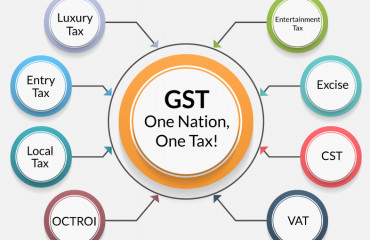
NEW DELHI : The government has notified several tax rate changes cleared by the Goods and Services Tax (GST) Council at its meeting last month which will take effect from Monday and has sought public comments on a revamp of the GST return form. The new rates notified include a 5% tax on services provided by clinical establishments by way of room other than intensive, critical care, intensive cardiac care and neonatal intensive care units where the rent levied is more than ₹5,000 a day.
NEW DELHI : The government has notified several tax rate changes cleared by the Goods and Services Tax (GST) Council at its meeting last month which will take effect from Monday and has sought public comments on a revamp of the GST return form. The new rates notified include a 5% tax on services provided by clinical establishments by way of room other than intensive, critical care, intensive cardiac care and neonatal intensive care units where the rent levied is more than ₹5,000 a day.
On this, credit for input taxes is not available. A 12% tax on treatment of biomedical waste and a 5% tax on transport services by way of ropeways are also among the rates notified by the Central government. States issue their own orders too relating to State GST.
Separately, Central Board of Indirect Taxes and Customs (CBIC) has sought suggestions on revamping tax return form GSTR-3 B, based on which businesses pay taxes on a monthly basis. CBIC said that a proposal for comprehensive changes in the form was discussed at the last GST Council meeting in Chandigarh last month.
One of the goals is to auto-populate the form and improve the ease of filing returns. Auto-population of values from the return relating to supplies in form GTSR-1 into the monthly return form GSTR-3B will establish one-to-one correspondence to a large extent between the rows in the two forms and offer clarity to the taxpayer and tax officers, CBIC said. "It would minimize requirement of user input in GSTR3B and ease GSTR-3B filing process," the tax authority said.
GSTR 3B is a return capturing the summary of outward and inward supplies for a particular month, and the discussion paper takes into consideration various suggestions from both tax payers and administrators, including auto population and amendment in GSTR 3B, explained Abhishek Jain, tax partner at KPMG in India. The industry should proactively leverage this opportunity to send in their suggestions, latest by 15 September, said Jain.
One of the ideas considered in the proposed revamp is to design the form in such a way that it may be feasible to restrict editing of specific rows in GSTR-3B in line with legal provisions. Improving data quality and streamlining settlement of revenue from inter-state supplies are also among the considerations for the revamp.
